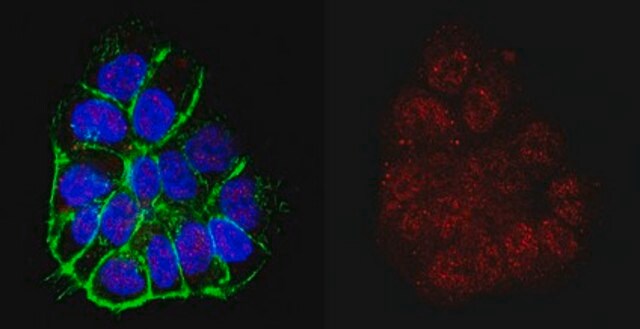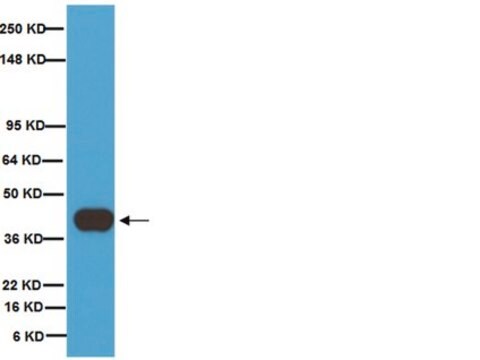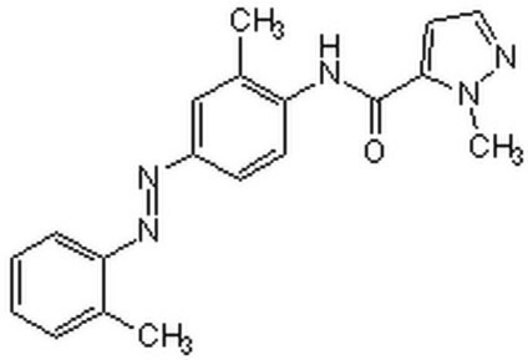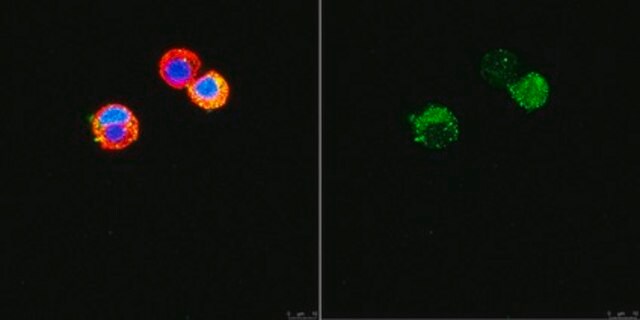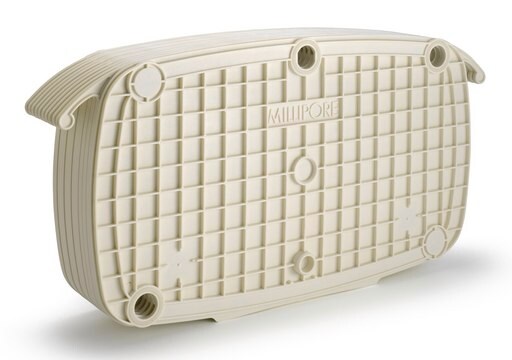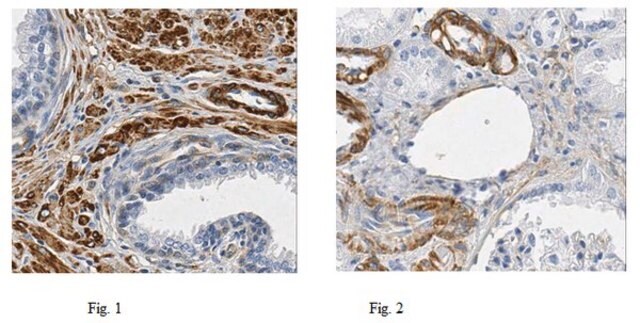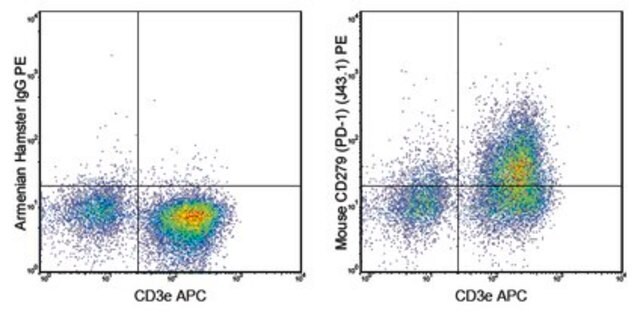MAB131884
Anti-BASE-tag Antibody, clone 7C7
clone 7C7, from mouse
Sinónimos:
Capsid protein VP1, Capsid protein AVV9
About This Item
Productos recomendados
origen biológico
mouse
forma del anticuerpo
purified immunoglobulin
tipo de anticuerpo
primary antibodies
clon
7C7, monoclonal
reactividad de especies
adenovirus-infected cells, virus
envase
antibody small pack of 25 μL
técnicas
immunofluorescence: suitable
immunoprecipitation (IP): suitable
western blot: suitable
isotipo
IgG2bκ
Nº de acceso UniProt
modificación del objetivo postraduccional
unmodified
Descripción general
Especificidad
Inmunógeno
Aplicación
Immunofluorescence: A representative lot detected EGFP-BASE-tag-Actin in HeLa cells transfected with EGFP-BASE-tag-Actin (Courtesy: Dr. Thomas Weber, Icahn School of Medicine at Mount Sinai, New York).
Inflammation & Immunology
Calidad
Western Blotting Analysis: A 1:500 dilution of this antibody detected BASE-tag in HEK293 cells transfected with GFP-7C7-Actin.
Forma física
Almacenamiento y estabilidad
Otras notas
Cláusula de descargo de responsabilidad
¿No encuentra el producto adecuado?
Pruebe nuestro Herramienta de selección de productos.
Certificados de análisis (COA)
Busque Certificados de análisis (COA) introduciendo el número de lote del producto. Los números de lote se encuentran en la etiqueta del producto después de las palabras «Lot» o «Batch»
¿Ya tiene este producto?
Encuentre la documentación para los productos que ha comprado recientemente en la Biblioteca de documentos.
Nuestro equipo de científicos tiene experiencia en todas las áreas de investigación: Ciencias de la vida, Ciencia de los materiales, Síntesis química, Cromatografía, Analítica y muchas otras.
Póngase en contacto con el Servicio técnico